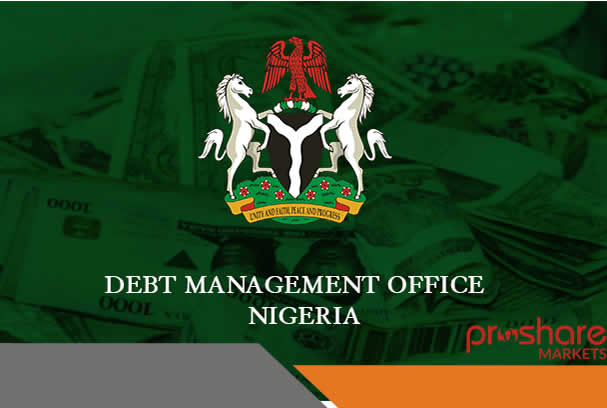Tuesday, November 07, 2017 10:20AM /DMO
Theplans of the Federal Government of Nigeria to source USD5.5 billion funds fromthe International Financial Markets comprises of two components: USD2.5 billionnew borrowing and USD3 billion for refinancing of existing Domestic Debt.
New Projects Capital Raising
Thefirst component of USD2.5 billion, represents new external borrowing providedfor in the 2017 Appropriation Act to part finance the deficit in that Budget.It will be recalled that the 2017 Appropriation Act provided for new ExternalBorrowing of N1.067 trillion or USD3.5 billion at an Exchange Rate of USD/N305.Out of this amount, USD300 million has been raised through a Diaspora Bond thatwas issued in June 2017 leaving a balance of USD3.2 billion out of which USD2.5billion is to be sourced through the international debt capital markets. TheUSD2.5 billion proposed capital raising, will be used to finance critical roadand rail projects included in the 2017 Appropriation Act.
Someof the projects are: construction of a Second Runway at the Nnamdi-AzikweInternational Airport; rail projects including Lagos-Kano, Calabar, Lagos,Kano-Kaduna, Ajaokuta-Itakpe-Warri, Kaduna-Idu; and the Bodo-Bonny Road with aBridge across the Opobo Channel. These infrastructural facilities will lead tojob creation and improve the climate for business thereby contributing toeconomic growth.
Domestic Debt Refinancing
Thesecond component of USD3 billion external borrowing will be used to refinancesome existing domestic debt. The FGN’s Domestic Debt Stock as at June 30, 2017at N12.033 Trillion was 78% of the Total FGN Debt Stock. Further, about N3.7Trillion or 31% of the FGN’s Domestic Debt was in Nigerian Treasury Bills(NTBs) with tenors of less than one year and at interest cost of about 17% p.a.
Theshort term nature of the NTB stock and the high interest rate associated withdomestic borrowing, expose the public debt to refinancing risk and high DebtService Costs. By converting some portion to External Debt, the tenor will beextended by at least 5 years while the Interest Cost will be significantlylower. The savings in Debt Service from refinancing a portion of the DomesticDebt with a USD3 billion borrowing is estimated at over N90 billion p.a.
Benefits of these External Capital Raising
ReduceDebt Service
Reducethe Interest Cost of Borrowing as external borrowing in US Dollars is at a muchlower interest rate than the domestic market.
IncreaseStability in the Debt Stock
Extendthe tenor profile of the debt stock when longer-dated External Debt is used toreplace short term domestic debt. This would make the debt portfolio morestable, thereby reduce refinancing risk.
Increasein borrowing space for the private sector
Thepressure in the domestic market created by the large government borrowing willbe reduced. This will create more space for borrowing by the private sectorwhich will enable them contribute to the growth of the Nigerian economy. Inessence, the issue of the government crowding out the private sector will beeffectively addressed as the government shifts its borrowing to externalsources.
Increasein Nigeria’s External Reserves
ExternalBorrowing represent foreign currency into the nation’s External Reserve therebyallowing for a stable exchange rate for the Naira.
OtherConsiderations
Theproposed USD2.5 billion new external borrowing to part finance the deficit inthe 2017 Appropriation Act and the refinancing of existing domestic debtthrough external capital raising of USD3 billion, are consistent with Nigeria’sDebt Management Strategy, whose main objective is to increase externalfinancing with a view to rebalancing the public debt portfolio in favour oflong-term external financing in order to reduce the cost of debt and lengthenthe maturity profile.
Incontracting new external debt, a conscious effort is made to exhaust allopportunities available from the concessional sources such as the World Bank inorder to reduce the level of External Debt Service.
Furthermore,all Borrowings are approved by the National Assembly and are included in theAnnual Appropriation Acts and the Medium Term Expenditure Framework (MTEF).
RelatedNews
2. Bond Market opens relatively quiet as Liquidity Tightensin the Tbills Market
3. Short-term Bills Remain Attractive Amid Increased BuyingInterest
4. FSDH Expects The Corporate Bond Market to Rebound
5. Nigerian T-Bill Boost to Bank Margins May Be Temporary
6. Dubai Financial Services Authority Continues To DevelopIts Funds Industry
7. Summary of FGN Bond Auction Results for October 2017
8. Money Supply in Nigeria Drops Further
9. Job done by the DMO Yet Still More to do
10. Finally, a Positive Story to Share
 Lagos, NG • GMT +1
Lagos, NG • GMT +1











 3554 views
3554 views





 Sponsored Ad
Sponsored Ad
 Advertise with Us
Advertise with Us









